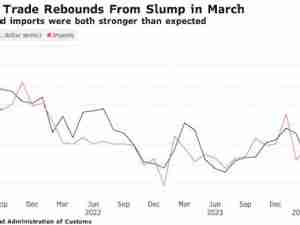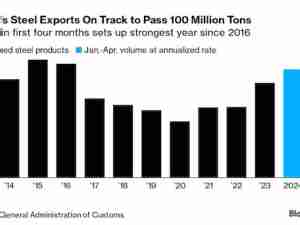Chancellor of the Exchequer Philip Hammond gets his chance at last to set out his vision for Brexit on Wednesday. Trouble is, the European Union will probably reject his bid to protect London as a financial hub before he has even made it.
Hammond will say that the EU needs the U.K.’s world-leading financial-services industry to stay strong after Brexit, and that a good deal on finance is in both sides’ interest.
“Every trade deal that the EU has ever done has been unique,” he will say in London, according to extracts released by his office. “So I am clear not only that it is possible to include financial services within a trade deal but that it is very much in our mutual interest to do so.”
But shortly before he stands up, EU President Donald Tusk will have set out the the bloc’s negotiating position for talks on the future relationship and will probably make clear that finance is off the table. EU officials have been cool so far on the U.K.’s proposal for mutual recognition – whereby each side recognizes as valid the other’s regulations. Part of their argument is financial stability. (Passporting, or the free access across borders that banks get from the EU’s single market, is off the table – even the Brits are no longer asking for it.)
French Economy Minister Bruno Le Maire was clear on Tuesday that all the U.K. can hope for is “equivalence,” a system the U.K. and its banking industry reject as inherently unstable. Equivalence can be withdrawn at short notice, so banks don’t like it.
QuickTake: The U.K.’s New Brexit Gotta-Have Is ‘Mutual Recognition’
However, some EU countries are a bit more open-minded about including finance in a trade deal, according to a Bloomberg survey of capitals earlier this year. One of the most dovish leaders is Luxembourg Prime Minister Xavier Bettel, who argues for pragmatism over orthodoxy. Bettel happens to be hosting Tusk on Wednesday and will be standing next to him when he takes questions from journalists.
Brexit Latest
Reversal Strategy | Opponents of Brexit are looking into a new strategy for reversing the divorce: Postpone the departure to give lawmakers and voters more time to weigh up whether they really want to leave. Pro-EU lawmakers in all three main parties have raised privately the possibility of delaying the exit deadline beyond March 2019, via an extension to the Article 50 mechanism that triggered the negotiations. There are hurdles at home and in the EU, but some EU countries have indicated they would be open to the idea.
Cliff-Edge | The U.K.’s commerce with 70 nations is in danger of falling off a “cliff edge” if the government doesn’t step up efforts to replicate EU trade agreements that Britain will cease to benefit from when it leaves the bloc, according to a panel of lawmakers. The government’s ministers don’t even know how many such agreements it will need to carry over when it leaves, according to the International Trade Committee. There seem to be about 40 deals involving about 70 countries, the panel said.
Deaf Ears | Irish Prime Minister Leo Varadkar said last year that the U.S.-Canada border can’t be a model for the Irish border as it has guns, dogs and checks. That hasn’t stopped Prime Minister Theresa May this week touting it as an option, and Brexit Secretary David Davis repeating the idea again on Tuesday.
Another Exit | Euroclear, a securities depository, will move its holding company to Brussels from London ahead of Brexit, the Financial Times reports. It will continue to operate a London subsidiary.
No Disclosure | A U.K. judge blocked an attempt by an anti-Brexit group to force the government to release internal studies on the impact of Brexit. The Good Law Project, which argues the documents must be released before lawmakers vote on the final Brexit deal, wanted to force a judicial review because its Freedom of Information applications will be slow, and other avenues have been blocked.
Coming Up | Brexit talks in Brussels; Tusk will circulate the bloc’s draft negotiating guidelines on the future relationship and then give a news conference at 12:15 p.m. London time. Hammond makes his big Brexit speech, at around 2:15 p.m. May has Prime Minister’s questions at noon.
And Finally…
Much has been made of how technology can provide the answer to the problem of the Irish border. But there are skeptics and this tweet sums up their views.
For more on Brexit follow Bloomberg on Twitter, Facebook and Instagram
To contact the author of this story: Emma Ross-Thomas in London at [email protected].
To contact the editor responsible for this story: Jones Hayden at [email protected], Andy Reinhardt
©2018 Bloomberg L.P.








